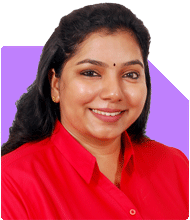31 yrs, Income 95,000 with 30 lakh Home Loan, 7 lakh Personal Loan - Best Investment Strategy?
Ramalingam Kalirajan |8291 Answers |Ask -Follow
Mutual Funds, Financial Planning Expert - Answered on Jul 19, 2024
He has an MBA in finance from the University of Madras and is a certified financial planner.
He is the director and chief financial planner at Holistic Investment, a Chennai-based firm that offers financial planning and wealth management advice.... more

Hi I am 31 yrs monthly income 95000. Home loan 30lakhs plus person loan 7lakhs doing a lic of 5000 per month and no other investment but have the balance salary gets used for monthly expenses can you pls help me to plan how to repay my home loan also my investment plan for retirement
You have a home loan of Rs 30 lakhs and a personal loan of Rs 7 lakhs.
You are paying Rs 5,000 per month for LIC.
Your remaining salary is used for monthly expenses.
Financial Goals
Repay Home Loan
Investment Plan for Retirement
Repaying Your Loans
Home Loan Repayment
Increase EMI Payments: If possible, increase your EMI payments to reduce the loan tenure and interest cost.
Part-Payments: Make part-payments whenever you receive a bonus or extra income to reduce the principal amount.
Loan Restructuring: Consider restructuring your loan for better terms if interest rates decrease.
Personal Loan Repayment
Prioritize Personal Loan: Personal loans generally have higher interest rates than home loans. Focus on repaying this first.
Consolidate Loans: If feasible, consolidate your personal loan into your home loan for a lower interest rate.
Monthly Budgeting
Expense Management
Track Expenses: Use an app or spreadsheet to track your monthly expenses.
Cut Unnecessary Costs: Identify and reduce unnecessary expenses to increase savings.
Investment Plan for Retirement
Building an Emergency Fund
Emergency Fund: Save at least 6 months' worth of expenses in a liquid fund for emergencies.
Systematic Investment Plan (SIP)
Start SIPs: Invest a fixed amount monthly in mutual funds through SIPs. Diversify across large-cap, mid-cap, and multi-cap funds.
Consistent Investing: Invest consistently for long-term growth and compounding benefits.
Diversification and Risk Management
Diversified Portfolio: Create a diversified portfolio with a mix of equity, debt, and other instruments.
Regular Review: Review and rebalance your portfolio periodically to align with your financial goals.
Insurance Coverage
Health and Life Insurance
Adequate Cover: Ensure you have adequate health insurance and life insurance cover. Consider term insurance for life cover.
Professional Guidance
Consulting a CFP
Seek Advice: Consult a Certified Financial Planner (CFP) for tailored financial advice.
Avoid Mistakes: Professional guidance can help you avoid costly investment mistakes.
Final Insights
To effectively manage your loans and plan for retirement, focus on reducing high-interest debts first. Consistently invest in a diversified portfolio through SIPs and maintain a disciplined approach to savings. Seek professional advice from a Certified Financial Planner to ensure your financial goals are met with minimal risk.
Best Regards,
K. Ramalingam, MBA, CFP,
Chief Financial Planner,
www.holisticinvestment.in
You may like to see similar questions and answers below
Ramalingam Kalirajan |8291 Answers |Ask -Follow
Mutual Funds, Financial Planning Expert - Answered on Jun 11, 2024
Ramalingam Kalirajan |8291 Answers |Ask -Follow
Mutual Funds, Financial Planning Expert - Answered on Jul 18, 2024
Ramalingam Kalirajan |8291 Answers |Ask -Follow
Mutual Funds, Financial Planning Expert - Answered on Jul 08, 2024
Pushpa R |62 Answers |Ask -Follow
Yoga, Mindfulness Expert - Answered on Apr 26, 2025
Pushpa R |62 Answers |Ask -Follow
Yoga, Mindfulness Expert - Answered on Apr 26, 2025
Radheshyam Zanwar |1571 Answers |Ask -Follow
MHT-CET, IIT-JEE, NEET-UG Expert - Answered on Apr 26, 2025
Radheshyam Zanwar |1571 Answers |Ask -Follow
MHT-CET, IIT-JEE, NEET-UG Expert - Answered on Apr 26, 2025
Radheshyam Zanwar |1571 Answers |Ask -Follow
MHT-CET, IIT-JEE, NEET-UG Expert - Answered on Apr 26, 2025
Dr Nagarajan Jsk |346 Answers |Ask -Follow
NEET, Medical, Pharmacy Careers - Answered on Apr 25, 2025
Nayagam P P |4463 Answers |Ask -Follow
Career Counsellor - Answered on Apr 25, 2025
Nayagam P P |4463 Answers |Ask -Follow
Career Counsellor - Answered on Apr 25, 2025
Nayagam P P |4463 Answers |Ask -Follow
Career Counsellor - Answered on Apr 25, 2025
Patrick Dsouza |1030 Answers |Ask -Follow
CAT, XAT, CMAT, CET Expert - Answered on Apr 25, 2025





















